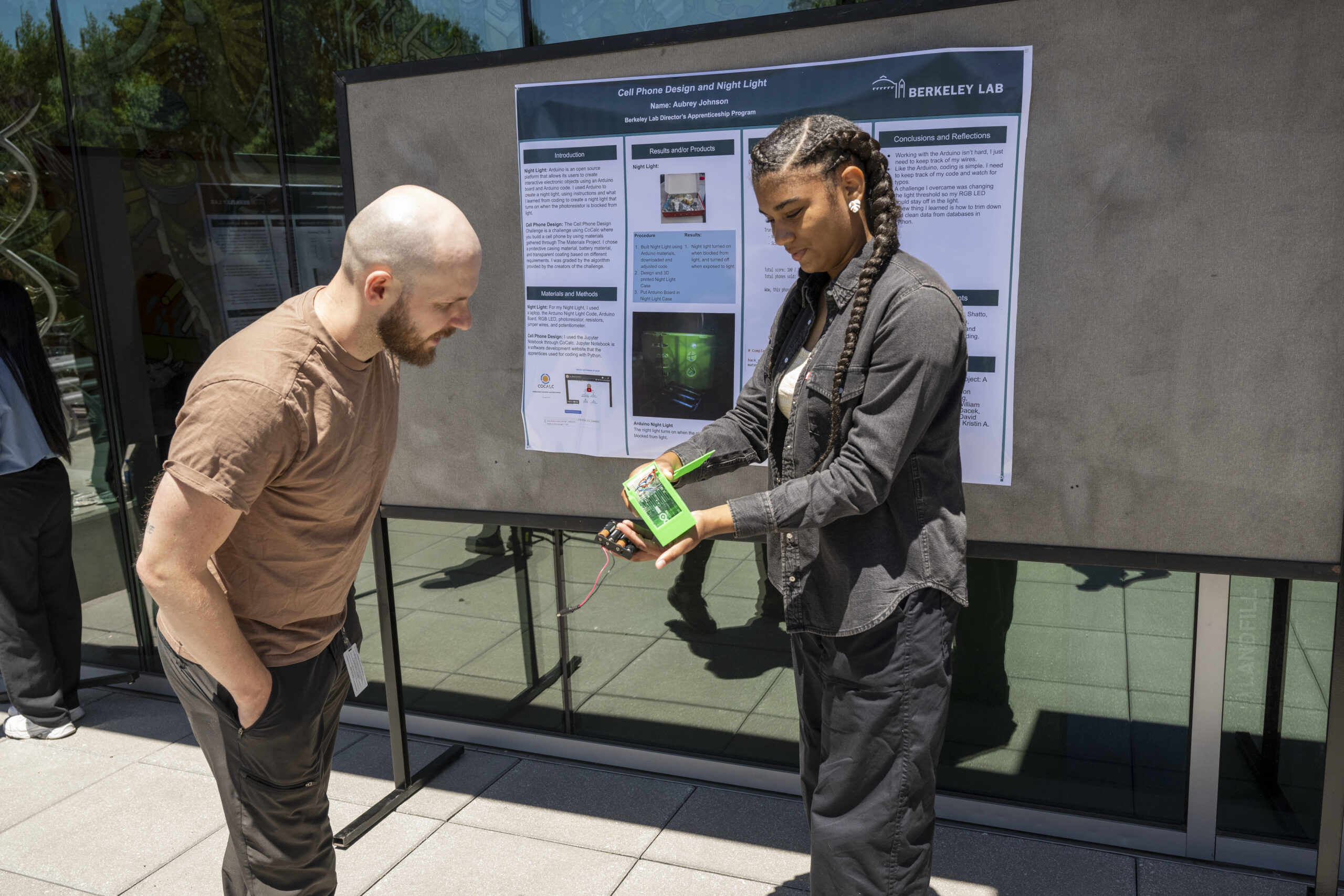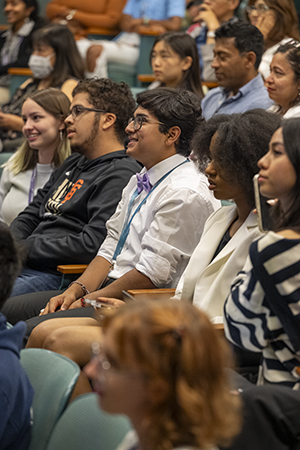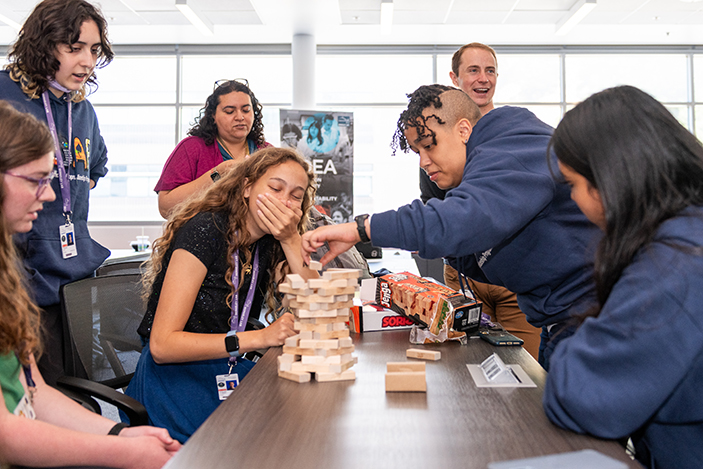Two recent funding grants from the Department of Energy will allow the Lab to bring more young people into the sciences. This is the first time in decades that the DOE has provided direct funding for K-12 programs at the Lab.
“This funding allows us to not only expand our programs, but it provides for a more in-depth learning experience,” said the K-12 STEM Education Program Director Faith Dukes. ”In QCaMP, we bring high school students to the Lab to expose them to areas such as quantum computing that can impact their career choices. The government is making a sizeable financial investment in quantum computing, and we want to ensure there will be a workforce to support it.”
The program has been operating for several years, but the funding will allow the program to expand. There is already one success story. This summer, a high school student from the 2022 cohort worked with QCaMP co-PI Bert de Jong, a senior scientist in the Computational Science Department, on Simulating Small Molecules with Quantum Simulators.
Outreach to find interested students has already begun. The K-12 team, with the support of Lab staff, will use some funding to host students from Alameda and west Contra Costa Counties to recruit interested students. Applications will open in early spring.
The second program, newly funded by the DOE, builds off the Director’s Apprenticeship Program. This program will have its fifth cohort in 2024, focusing on machine learning, data science, and plant biology. The program runs for six weeks, with the students on site four to five days a week. Once summer is over, the students will continue to meet monthly along with their Lab mentors. They will complete a data science project over nine months, participate in mock interviews, and work on college applications.
“The goal of this program is to prioritize students who are underrepresented in the STEM fields to give them a scientific network,” said Faith. “We are looking for students who are very interested in a STEM career but may not have the resources or family members to guide them into those fields. We also provide them with technical skills such as data science, coding, and wet lab experience.”
At least 60 percent of the students from the apprentice program end up interning at the Lab through the Lab’s high school formal internship program, Experiences in Research. The program’s ultimate goal is to have students apply and participate in DOE-funded undergraduate and graduate internship programs managed by Berkeley Lab’s Workforce Development and Education Office.
“It’s great to see our program go from an initial idea to impacting the next generation of STEM professionals. We strive to create opportunities that include in-depth relationships for the students who live in the communities around the Lab. We are continuously thinking about removing barriers to participation and inspiring students who may have never considered working at the Lab.”
Employees interested in being part of either program, whether they work in a science or science-adjacent field, are encouraged to volunteer.





